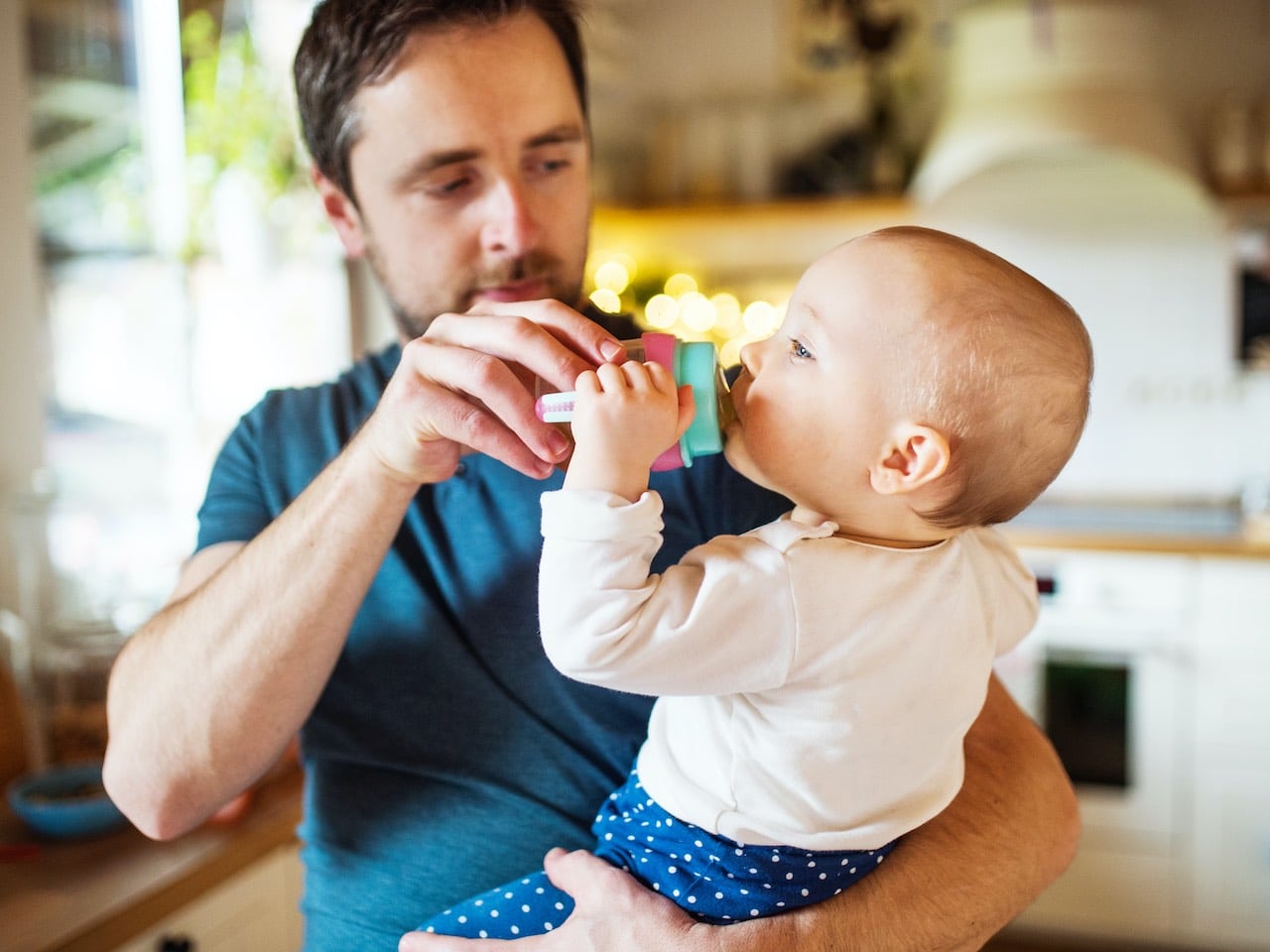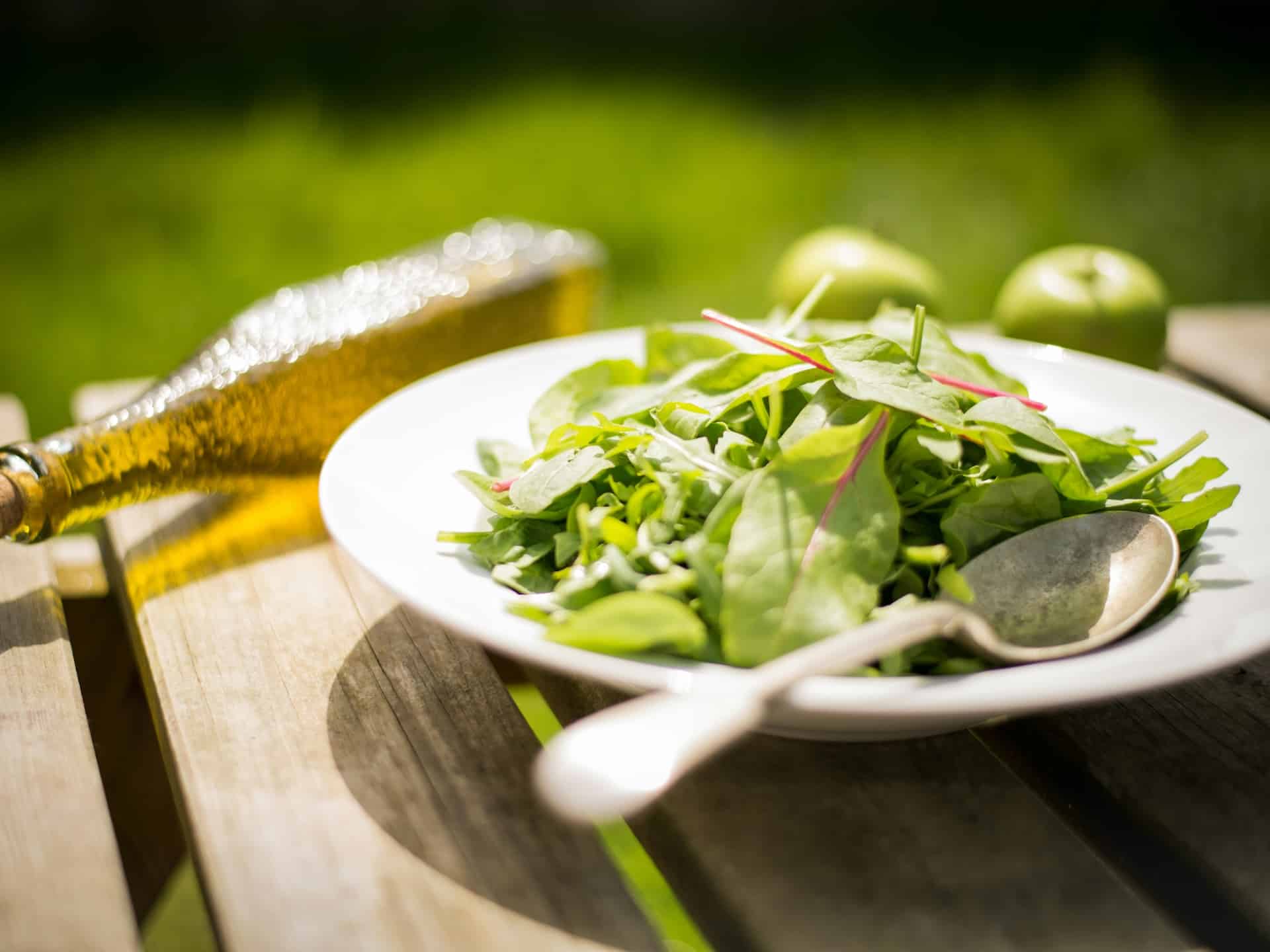
Dehydration in children usually occurs “as a secondary consequence of gastrointestinal processes that cause diarrhea and/or vomiting, which increase losses and/or limit the entry of water and electrolytes,” says dietician-nutritionist Miriam Latorre.
It can also appear with certain endocrine diseases, such as diabetes, and “we must not forget those situations in which losses increase due to excessive physical activity and heat, especially when access to drinks is limited, or when their intake is difficult. . due to inflammation or dental or throat pain,» details Latorre, member of the Spanish Academy of Nutrition and Dietetics.
Symptoms of dehydration in children
If you see rapid weight loss, a decrease in the number of times the child has to urinate, or a dark color of the urine, the child or baby is becoming dehydrated.
In addition to these generic signs, the expert distinguishes between the typical symptoms of extracellular dehydration and those of intracellular dehydration. Extracellular dehydration presents more rapid and specific symptoms of circulatory volume loss:
- Skin coldness
- tachycardia
- weak pulse
- arterial hypotension
- Dry mouth and mucous membranes
- fainting
- Cerebrovascular accidents
- hypovolemic shock
The signs of intracellular dehydration are of a more neurological nature, at the level of the central nervous system:
- discomfort
- headache
- Nausea and vomiting
- irritability
- drowsiness
- muscular weakness
- bradycardia
- fiber
- Tremors, cramps, or hypertonia (muscle stiffness)
- Intracerebral hemorrhages, seizures and coma.
- Mouth and “pasty” mucous membranes
How to act in the event of an episode of dehydration?
In case of moderate dehydration (loss of up to 5% of body weight) it is necessary Go to a health center as soon as possible. There they will perform a blood test to assess the severity of their condition and a treatment will be paused to replenish the electrolytes and stop the progression of the clinic,» explains the expert.
In the event of mild dehydration, it is enough to replace water and electrolytes, without needing to know biochemistry.
«In any case, measures must be taken to minimize water losses, such as avoiding exposure to high temperatures and avoiding physical activity in these conditions. And, of course, ensure continuous replacement of fluids and electrolytes. Furthermore, the cause must be treated, for example, in the case of diarrhea due to infection, the child would have to be treated with an astringent diet, probiotics and, if necessary, also antibiotics,» he points out.
Consequences of dehydration in children
In the face of dehydration symptoms in children, every minute counts. «In the short term, it is common to suffer musculoskeletal injuries, such as sprains, fatigue, constipation or other digestive problems. Prolonged episodes of dehydration can cause chronic digestive problems, a higher frequency of urinary tract infections, kidney stones and even kidney failure,” he emphasizes.
A dehydration situation that persists over time can cause Severe damage, especially to the kidneys.. “In addition, dehydration (even at a subclinical level) promotes alterations in glycemic control and facilitates metabolic disorders, such as obesity and diabetes, and also has implications for cognitive function (memory, logical skills, vision) and, therefore, in the school performance”explains Latorre, a member of the Academy’s pediatric nutrition specialization group.
On the other hand, «kidney, vascular, or metabolic diseases, such as diabetes or other endocrine problems, can more quickly complicate dehydration and, in this way, worsen the prognosis. Without forgetting that there could be other problems that mask or mimic the symptoms, which could complicate the diagnosis,» he points out.
What do I give my child to drink if he is dehydrated?
There is unanimous consensus among all dietitians-nutritionists: the main source of hydration for children in normal situations should always be water as a regular drink.
However, in times of great losses, such as during intense physical activity, adapted isotonic sports drinks can be recommended, but slightly diluted, since their concentration must be lower than in adults. “The pause is not well established, since it varies greatly depending on age and the intensity of the losses,” says the dietician-nutritionist.
In case of losses due to diarrhea or vomiting, it is necessary to drink drinks with an osmolarity appropriate for children sold in pharmacies, as explained later.
Juices are not a good alternative to replace fluids.
If you do not have an isotonic drink on hand, Latorre suggests using diluted natural juices or lemonade for small children and only in these emergency cases. He advises against milk or fermented milk drinks, which can be used at the end of the activity as part of a subsequent intake, nor soft drinks, «whose consumption should only be exceptional in general, but even more so in children.»
The juices are not a good option for rehydration. «There are some studies that show that it is possible to rehydrate with diluted apple juice, but we must keep in mind that not all of them have the same composition and that, therefore, in homes it is very easy to choose an incorrect dilution.»
Fruit juices, like sugary drinks, are not recommended for regular consumption as they are a source of free sugars that are associated with a greater risk of cavities, obesity, cardiovascular diseases and other metabolic diseases, such as diabetes, in children diarrhea can increase due to alterations in osmolarity, that is, due to its high amount of sugars. Sufficient reasons to advise against their use as rehydration drinks.
Oral rehydration sales: what they are and how to give them
Rehydration in mild cases
Rehydration is the usual pause in mild and moderate dehydration, especially in acute situations due to some pathological situation or very intense and prolonged physical exercise carried out using oral rehydration solutions (ORS), that is, hydration serums. These are adapted and They are composed of water, electrolytes (at least sodium, chloride, potassium), glucose and/or dextrose and a base (bicarbonate, citrate, acetate). The glucose concentration should not exceed 150 mmol/L and the sodium/glucose ratio should be 2:1 or less. If they are purchased already diluted, errors in their preparation are avoided, but they can also be purchased in powder form.
dehydration grave
Moderate or severe dehydration is considered present when the child loses 5 to 15% of body weight. In these cases, in which there is hospital admission, an ORS intake of 20-60 ml/kg may be necessary in a first ‘resuscitation’ phase, usually parenterally. Subsequently, in the ‘replacement’ phase, rates of 10 ml/kg/hour are administered for about 8 hours.
Neither too much nor too little: risks of drinking too much water
Water is the best food to stay hydrated, both for adults, children and babies. Although the amount of water varies depending on the physical activity, temperature or age of each person, in no case is it good to drink too much in a short time. “The kidneys are unable to eliminate excess fluid and water accumulates, causing headache, nausea, vomiting, diarrhea, and even edema,” warns the expert.
Although it is very difficult for this to happen in healthy people, there may be situations of hyperhydration secondary to a disorder that reduces the body’s ability to eliminate water or increases the body’s tendency to retain it, such as when there is severe kidney dysfunction.
The thirst signal is usually a good indicator, but sometimes it can be damaged. It happens with diabetes. Observing that a child (or adult) drinks more water than normal sometimes alerts you to its presence.
Finally, «it is advisable to carry out a differential diagnosis, since problems such as potomaniaan eating disorder (ED) in which there is a compulsive desire to drink water, or water addiction, called congenital polydipsia«.
Fresh foods as a source of hydration
In addition to water intake, the most appropriate solid foods to maintain good hydration are «those with high water and electrolyte content, such as fruits and vegetables in general,» says Latorre.
How to prevent dehydration in children?
The best way for children to stay hydrated is through regular water intake throughout the day. «To avoid dehydration, I would advise drinking water, especially outside of meals, every so often, and in an appropriate quantity, that is, so that children feel their thirst quenched, and that it should be increased in case of high temperatures, as well as when doing physical activity. If this physical activity is intense and/or is carried out at high temperatures and/or for a long time, it may be useful to drink isotonic sports drinks,” adds the expert.
In case of exposure to the sun, an additional measure to protect ourselves from excessive radiation could be to wear appropriate clothing and a cap or hats, and good protection against the skin being exposed to ultraviolet rays. «And as always, don’t forget to include vegetables and/or fruits in all meals: breakfast, mid-morning, lunch, snack and dinner.»
The entry Dehydration in children: symptoms, prevention and how to keep them hydrated was first published in Nutriiendo.







Thanks for sharing. I read many of your blog posts, cool, your blog is very good.
Thank you for your sharing. I am worried that I lack creative ideas. It is your article that makes me full of hope. Thank you. But, I have a question, can you help me? https://accounts.binance.com/si-LK/register-person?ref=V2H9AFPY
Your article helped me a lot, is there any more related content? Thanks!
I don’t think the title of your article matches the content lol. Just kidding, mainly because I had some doubts after reading the article.